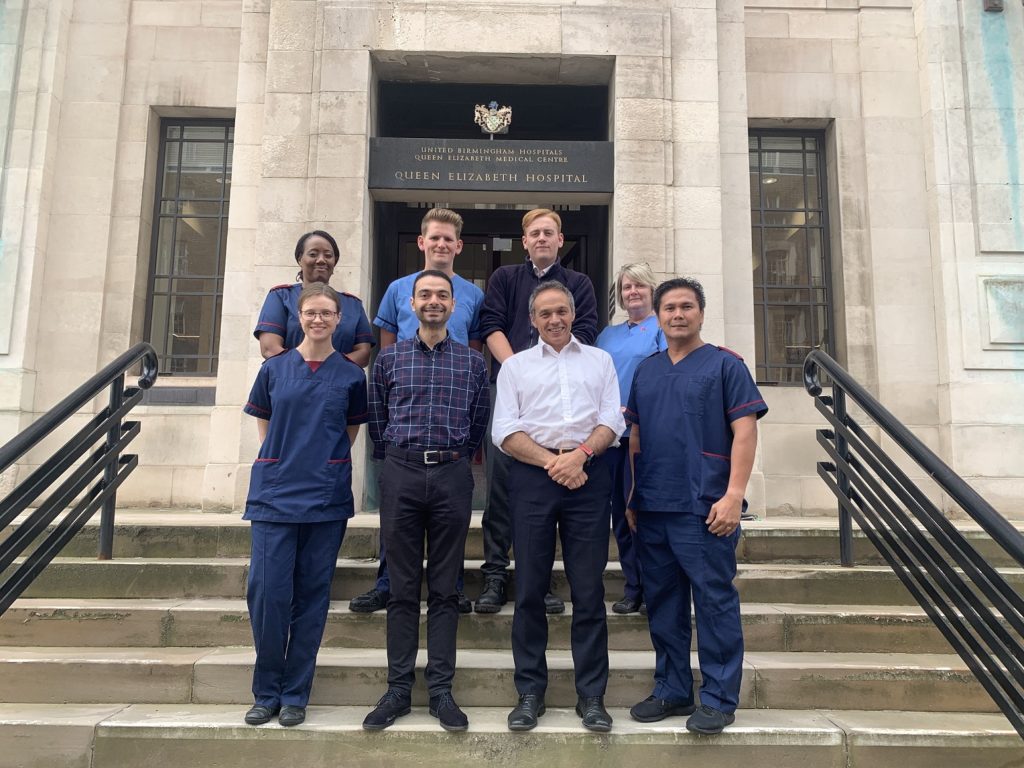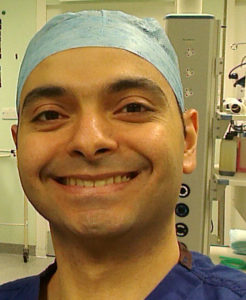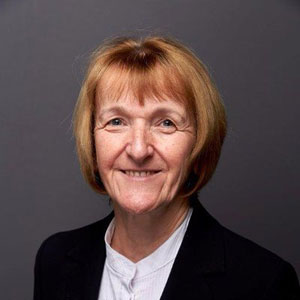
Trauma is not nine to five – and neither are our research nurses


Marking the 200th anniversary of Florence Nightingale’s birth, 2020 has been named the ‘Year of the Nurse and Midwife’ by the World Health Organization (WHO). While many of us will think of a hospital ward-based caregiver when asked to picture a nurse, they actually undertake a much wider variety of roles than you may know. In the first of a series of blogs, we meet the professionals working around the clock to support clinical trials – the SRMRC research nurses.
Every patient should have the chance to take part in a research trial. But what happens when illness or injury strikes suddenly, outside of normal working hours?
The NIHR Surgical Reconstruction and Microbiology Research Centre (SRMRC) has sought to ensure that trauma and serious illness would no longer be a barrier to research since its nursing team was established in 2012. However, the first year revealed difficulties in recruiting to trauma trials during evenings and weekends. As a result a 7am-7pm on-call service was established, to ensure that even the most critical patients – no matter what their injuries are or when they are admitted – have the opportunity to join a study. Additionally, two critical care nurses work over the weekend so that recruitment can continue – vitally important when we consider the trauma risks of leisure and social activities that occur on Saturdays and Sundays.
The 24/7 research nurse team is a trailblazer – the first nurse-led team in the UK to operate out of a major trauma centre 24 hours a day, every day of the year – with a reputation for recruiting to the trials no-one else could. In 2012 they were lauded as the fastest-recruiting team to the SyNAPSE study, even though the trial was open at hundreds of centres and in 21 countries worldwide.
Advancing scientific understanding, improving care and shaping the treatments of the future
Covering trials in neurotrauma; trauma and orthopaedics; critical care; burns; hand injuries; peripheral nerve damage; and emergency and pre-hospital medicine, the SRMRC research nurses see patients and families at their most vulnerable. The incredibly complex studies to which they recruit require the highest level of skill to screen and enrol patients, alongside the empathy and compassion needed to support extremely sick people and their families at a time when clinical research is the least of their concerns.
The team are also master multi-taskers – the 10 nurses are currently recruiting to over 30 clinical trials, and with their expertise held in such high regard, new studies are sent to them on an almost daily basis. Thanks to the high rates of recruitment they achieve around the clock, the exemplary quality of the data that they collect and the dedication of each individual team member, SRMRC is regularly named the top recruiter to complex, multi-centre and even international trials.
As well as working with colleagues in research and clinical care across the BHP members, the research nurse team has developed collaborative partnerships with more than 50 international universities, trial centres and pharmaceutical companies – including global brands such as AstraZeneca and GlaxoSmithKline – as well as the MoD. These collaborations are vital for developing treatments for trauma patients and translating scientific discoveries from the bench to the bedside.
The SRMRC nurses have also set-up a dedicated research Patient and Public Involvement (PPI) group to make sure the patient is at the centre of all its work. The group has provided feedback for studies, co-designed research materials and acted as lay representatives on grant applications – all of which helps to keep the centre’s work focused on the needs of patients.
Vital to the ground-breaking research being carried out both here in Birmingham and around the country, the team’s ability to recruit patients 24/7/365 has enabled the capture of data which truly reflects the general population. Its work is underpinned by a belief that a trauma patient coming into the emergency department at 3am should have the same opportunity to take part in research – and to contribute to scientific discoveries – as someone coming in between 9 and 5. The research nurse team has allowed research in trauma and emergency care to become embedded as part of normal clinical care and a fundamental stage in the patient journey.
As a former research patient summed up: “being able to take part in a trial meant that something positive could come from one of the worst days of my life.”





